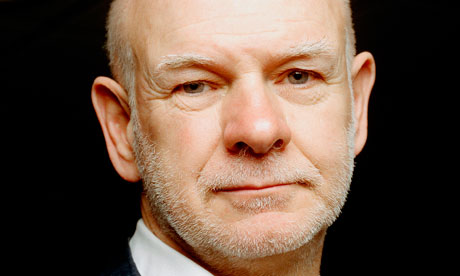London School of Economics director Howard Davies resigns after fresh allegations over institution's links to Libyan regime

A deepening row over the London School of Economics and its dealings with the Gaddafi regime has claimed the career of the university's director.
Sir Howard Davies resigned over fresh revelations that the institution had been involved in a deal to train hundreds of young Libyans to become part of the country's future elite.He said "the short point is that I am responsible for the School's reputation, and that has suffered", adding he had advised that it was reasonable to accept money from Libya and that "that has turned out to be a mistake".
The LSE said in a statement it had accepted Davies' resignation with great regret and that it had set up an independent external inquiry into the school's relationship with Libya and one of Muammar Gaddafi's sons, Saif al-Islam, to be conducted by the former lord chief justice Lord Woolf.
Davies admitted at the start of this week that he felt embarrassed about the university's ties with the dictator's family.A leaked US diplomatic cable indicates that the British government was also party to the deal to bring 400 Libyans to Britain for leadership training. The cable, published by WikiLeaks, suggests that other UK universities were involved in similar schemes, though there is no independent confirmation of this.
The university's reputation has taken a battering over links with the Libyan regime, which include a donation of £1.5m from a charitable foundation run by Saif, who studied at the LSE. On Tuesday, the LSE agreed to put £300,000, equivalent to the cash it has received from the foundation, into a scholarship for north African students.
But that was not enough to draw a line under the affair. On Thursday morning, a report of the WikiLeaks claims was circulated to members of the LSE council, its governing body in advance of a crisis meeting.
In September 2009, US diplomats were told by Libya's national economic development board: "The NEDB is cooperating with the UK government and the London School of Economics, among other UK institutions, on an exchange program to send 400 'future leaders' of Libya for leadership and management training."
A Libyan official told the diplomats that, apparently as part of the same deal: "Two hundred and fifty additional Libyan 'future leaders' would also be trained in Libya. Likewise, the NEDB is working with universities in the United States (Michigan State and elsewhere), the UK, and France to manage exchange programs for 90 young Libyan diplomats (30 Libyan diplomats are currently being trained in each country)."
The official, Faouzi Saleh Elmozogi, said the NEDB "had also sent 70 Libyan judges to the UK to study English language and international law".
The Foreign Office confirmed that the NEDB had sent 70 Libyan judges and 30 diplomats to the LSE to study English language and international law.
It remained unclear whether these were in addition to the 400 "future leaders" agreed as part of a £1m deal to train the dictatorship's elite.
A diplomatic source said: "The Foreign Office was aware of the deal. But it was a purely private arrangement and was not something that the Foreign Office was intimately involved with."
The source added that as far as the Foreign Office was aware, the LSE was the only British university involved in the Libyan leaders' programme.
These revelations put fresh pressure on Davies, who had begun the week attempting to salvage the LSE's reputation with an act of contrition. He appeared on BBC Radio 4's Today programme to say: "We thought that since he [Saif al-Islam] was not going to control the research that this was a reasonable thing to do and this was supported widely in the school.
"It was debated at some length. We took a risk on that and I think it's right to say that that risk backfired on us.
"I feel embarrassed about it but I don't think the decision was made without due consideration at the time."
The LSE has separately confirmed it was investigating claims that Saif had plagiarised parts of his doctoral thesis, allegations that have caused further embarrassment.
On Tuesday, after a meeting of the LSE council, the university said in a statement that the governing body had endorsed the director's decisions to date.
It said that the Gaddafi grant proposal had been "agreed by the council for reasons which appeared sound at that time".
The LSE has come under pressure from its students to return the Gaddafi donation.
Ashok Kumar, the education officer of the LSE students' union said : "The recent revelations have shone a light on one part of the relationship between the upper echelons of the LSE and the Gaddafi family, which is deeper and more perverse than we would have ever imagined.
"This issue is damaging the reputation of the school – it should be a place of learning – not at the centre of unscrupulous dealings with Libyan regime."

No comments:
Post a Comment